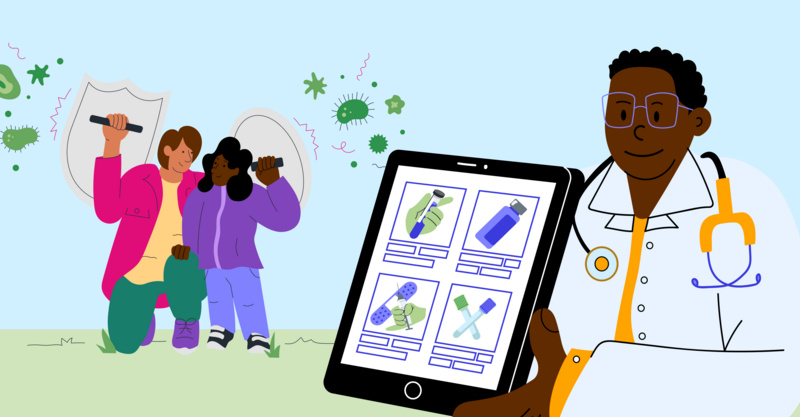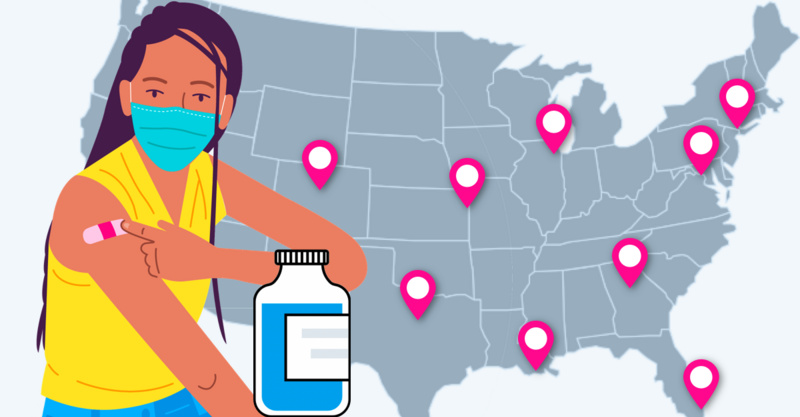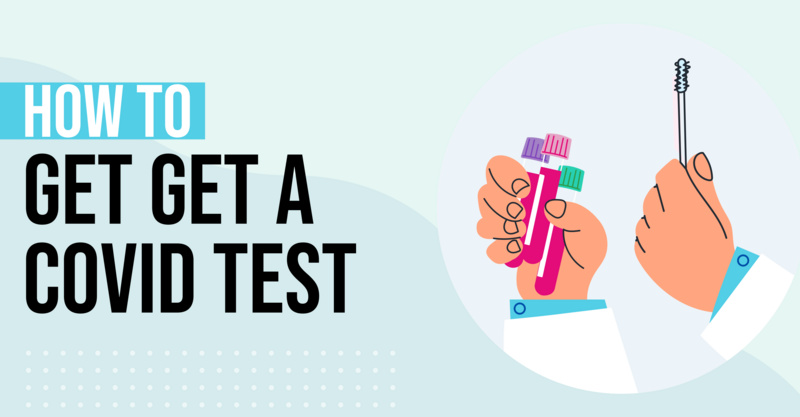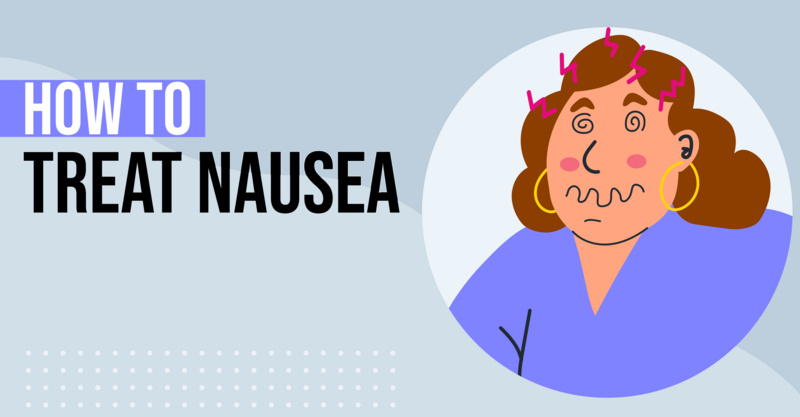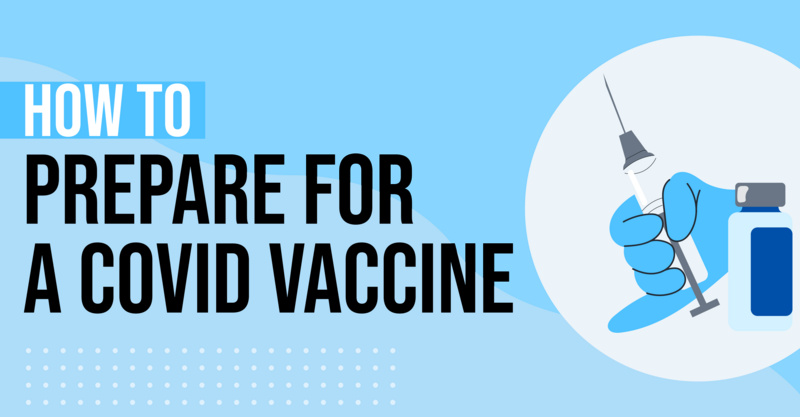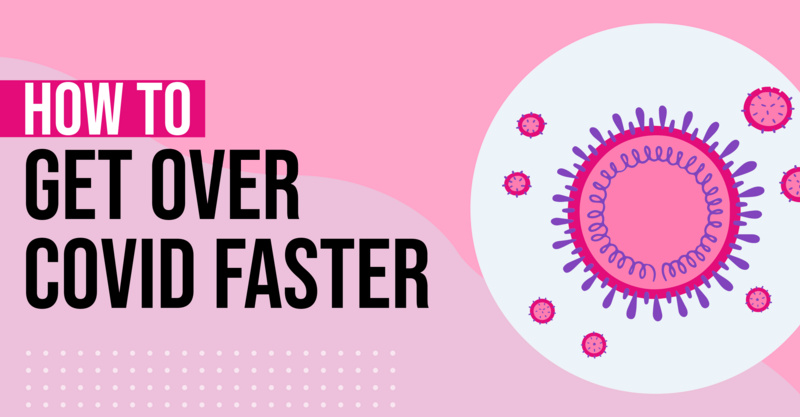Key Points
- The article discusses the Pfizer, Moderna, and Johnson & Johnson COVID-19 vaccines, all of which have received emergency use authorization in the U.S.
- Pfizer's vaccine, for those aged 12 and older, has a 95% efficacy rate, while Moderna's, for those 18 and older, is 94.1% effective. The Johnson & Johnson vaccine, also for those 18 and older, has a 66.3% efficacy rate.
- The vaccines work by stimulating the immune system to produce antibodies against the virus, providing immunity. Pfizer and Moderna vaccines require two doses, while Johnson & Johnson requires only one.
- Post-vaccination, individuals can resume many pre-pandemic activities, but some precautions are still advised.
- The vaccines are free, and no proof of U.S. residency is needed to receive them. The article also includes FAQs and questions to ask a doctor before getting a COVID-19 vaccine.
Approved COVID-19 Vaccines
Pfizer, Moderna, and Johnson & Johnson have each developed COVID vaccines and received emergency use authorization (EUA). Pfizer's vaccine has received EUA for individuals 12 years of age and older, while both Moderna and Johnson & Johnson are approved for people 16 and up. During the initial rollout of the vaccine, however, it is unlikely individuals will be able to choose which vaccine they want.
1. Pfizer-BioNTech COVID vaccine
On December 11, 2020, the U.S. Food and Drug Administration issued the first EUA for a vaccine for the prevention of COVID-19 in individuals . The emergency use authorization allowed the Pfizer-BioNTech COVID-19 Vaccine to be distributed in the U.S. to individuals 16 years of age and older.
On May 10, 2021 The U.S. Food and Drug Administration issued an EAU for use of the vaccine in children from the ages 12-16. This announcement came after Pfizer’s recent trial of the vaccine in adolescents which demonstrated that the vaccine is at least as effective as it is in adults.
Pfizer, in partnership with BioNTech, released an efficacy analysis of their phase 3 trials involving 42,000 people, about half of whom got the experimental vaccine with the other half receiving a placebo. 170 participants contracted COVID-19 with only 8 of them being from the vaccine cohort. This equates to a 95% vaccination success rate, which is about as good as any vaccine, even after years of development, can ever expect. The inoculation process involves two doses, with the second dose administered 3 weeks after the first.
2. Moderna COVID vaccine
On December 18, 2020, the U.S. Food and Drug Administration issued an EUA for the second vaccine for the prevention of COVID-19. The emergency use authorization allows the Moderna COVID-19 Vaccine to be distributed in the U.S for use in individuals 18 years of age and older.
Similarly to Pfizer, Moderna’s is a two-dose COVID-19 vaccine with a nearly identical efficacy rate of 94.1%. These results follow a 30,000-volunteer study with only 11 positive COVID cases occurring from the group that received the vaccines rather than the placebo. Unlike the Pfizer vaccine, the Moderna version does not have as strict refrigeration requirements, likely making their vaccine more easily transported, stored, and administered through existing healthcare infrastructure.
3. Johnson & Johnson/Janssen
In clinical trials, the J&J/Janssen vaccine was 66.3% effective at preventing laboratory-confirmed COVID-19 illness in people 2 weeks after receiving the vaccine, and had high efficacy at preventing hospitalization and death in people who did get sick. No one who got COVID-19 at least 4 weeks after receiving the J&J/Janssen vaccine had to be hospitalized.
Early evidence suggests that the J&J/Janssen vaccine might provide protection against asymptomatic infection, which is when a person is infected by the virus that causes COVID-19 but does not get sick.
The Three Types of COVID-19 Vaccines
Each of the three vaccines approved for use in the U.S., as well as common vaccines from around the world, generally fall into 3 main types:
1. mRNA Vaccines (Pfizer-BioNTech, Moderna)
mRNA vaccines contain a few one-time-use mRNA (instructions your cells follow to make proteins), which causes some of your cells to temporarily make copies of a protein unique to the SARS-2, in this case, the spike protein on the virus’ surface. The proteins are then attached to the outside of your cells, where your immune system recognizes and develops antibodies to attack them. Your body will remember how to make the antibodies in the future, allowing it to fight off future infections.
2. Protein Subunit Vaccines (Novavax)
These vaccines contain harmless, isolated proteins from the COVID virus. Your immune system recognizes the proteins as foreign and develops antibodies to remove them from your body. The next time your immune system encounters a virus with similar proteins (like COVID-19) it will already know how to make the antibodies to fight it.
3. Vector Vaccines (Oxford-AstraZeneca, Johnson & Johnson)
Vector vaccines contain a weak version of a different virus modified to contain genetic material from COVID-19. The genetic material prompts your body to produce copies of a protein unique to the SARS-2 virus. Your immune system then fights to remove these proteins from your body by producing antibodies. If you ever come into contact with the virus again, your body will already know how to create the antibodies to remove it.
What to Expect with a COVID Vaccine
Getting a COVID vaccine will be similar to the process of getting any other type of vaccine. Patients should talk to their doctors about whether they have allergies and if they have ever experienced a reaction or specific side effects from a vaccine in the past. They should also inform their doctors whether they are currently ill, pregnant, or planning to become pregnant, as the COVID vaccine may not be safe or effective in these cases.[10]
The injection itself usually only lasts a few seconds and may feel like a slight pinch on the skin. Most people do not experience serious side effects from vaccines, and any side effects they do experience are usually mild. Chills, low-grade fever, headache, tiredness, and muscle and joint aches are the most common side effects of vaccines.[10]
People who get a COVID vaccine will need another booster shot roughly 3 weeks after the first shot to stay protected from COVID-19. It is not yet known how long immunity to COVID-19 will last after receiving a COVID vaccine.[7]
4 Reasons You Need a COVID Vaccine
1. Protect Yourself From COVID-19
By receiving a COVID vaccine, you can reduce your risk of contracting COVID-19 from an infected person and becoming seriously ill from the virus. A COVID vaccine may also prevent you from experiencing long-term effects of COVID-19 should you contract a mild case of the virus or are asymptomatic. Long-term effects of COVID-19 include lingering headaches, fatigue, vertigo, cognitive problems, hair loss, heart problems, dry cough, and reduced cardiorespiratory fitness levels.[1]
2. Protect Family and Friends From COVID-19
Getting a COVID vaccine may prevent you from getting COVID-19 and spreading the virus to relatives, friends, and other people who live in your household or with whom you spend lots of time. COVID-19 spreads mainly from person to person in the form of droplets produced when an infected person talks, sneezes, or coughs. Therefore, getting a COVID vaccine can prevent the spreading of the virus to others with whom you make close contact.[2]
3. Protect People Who Cannot Be Vaccinated
Getting a COVID vaccine can help you protect other populations that cannot be vaccinated for specific health reasons. For instance, neither of the vaccines are ready for use in certain populations, such as children under 16. The individuals who cannot be vaccinated rely on herd immunity to protect them from contracting COVID. By getting a vaccine yourself, you are doing your part in protecting the vulnerable.
4. Work Requirement
Some workplaces may require employees to get the COVID vaccine to help protect coworkers and the community members they serve. Healthcare workers and first responders are usually required to stay on top of vaccinations and immunizations, including the COVID vaccine.[4] Other employers and businesses may require employees to get the COVID vaccine to help reduce costs related to missed work and low productivity.[5]
Risks of a COVID Vaccine
All vaccines come with potential risks and side effects.[8] The most common side effects associated with vaccines are low-grade fever, malaise, and redness and pain at the injection site.[9] More than 50% of people who received early COVID-19 vaccines reported experiencing mild short-term side effects including fever, headache, muscle aches, and reactions at the injection site.[7]
What can I do after the vaccine?
Once you’re fully vaccinated, the CDC says, you can safely return to many of your pre-pandemic activities, like attending indoor social gatherings or visiting the hair salon.


Being vaccinated is a huge relief, but it doesn’t mean life will immediately snap back to your pre-pandemic normal. According to the CDC, there are still precautions even fully vaccinated people should adhere to.
What does it mean to be fully vaccinated?
The CDC considers you fully vaccinated 2 weeks after your second dose of the Pfizer or Moderna vaccines or 2 weeks after your first dose of the Johnson & Johnson vaccine. While you may have partial immunity before then, it’s important to wait the full 14 days after your final dose before attempting any post-vaccine activities (like gathering with fully vaccinated friends.)

Understanding Emergency Use Authorizations (EAUs)
Normally, the U.S. Food and Drug Administration (FDA) puts products through rigorous testing and collects evidence to establish its efficacy and safety. During declared emergencies such as the COVID-19 pandemic, the FDA weighs the potential risks and benefits of approving a product quickly. An EAU is issued only after the FDA, in consultation with a coalition of government health entities, determines that the benefits outweigh the risks.
EAUs are issued by the FDA commissioner upon being deemed necessary by the Department of Health and Human Services. Before an EAU is issued, the FDA commissioner consults with the Assistant Secretary for Preparedness and Response, Centers for Disease Control and Prevention, and the National Institutes of Health.
COVID Vaccines FAQs
When will I be eligible for the vaccine?
As of May 10 the Pfizer vaccine has received EUA from the FDA to vaccinate the 12-15 year old population, thus making everyone 12+ years old in the U.S. eligible for the COVID vaccine. According to Dr. Anthony Fauci, there could be "enough information to be able to safely vaccinate children of virtually any age" by the end of the year, referencing recent data from Pfizer.
Where can I get a COVID-19 vaccine?
The COVID vaccine is currently available to eligible individuals through health clinics, hospitals, health departments, pharmacies, and doctors’ offices including urgent care centers. COVID vaccine locations are changing daily. Solv, through partnership with vaccinefinder.org and others, is actively maintaining the list of providers above and is refreshing at least daily, so check back frequently. Additionally, check directly with vaccine providers near you as last minute availability for eligible populations sometimes opens up.
What pharmacies are administering the COVID vaccine?
Independent pharmacies, as well as regional and national chains, are administering the COVID vaccine across the country. Most are partnered with HHS directly to make the vaccine available as quickly as possible. Here are a few of the major pharmacy chains administering the vaccine: Albertsons, CVS, Costco, Kroger, Rite Aid, Target, Walgreens, and Walmart
Will the COVID-19 vaccine be covered by my insurance?
No fees will be charged to get vaccinated. You may be required to provide insurance information when you receive your vaccine. If there is a charge associated with administration of the vaccine, your insurance or the Health Resources and Services Administration's Provider Relieve Fund will compensate providers with no cost to you.
Do I need to be a US resident to receive the vaccine?
Proof of US residency will not be required in order to receive a COVID vaccine. Any personal information shared with vaccination centers can not be used for civil or criminal prosecution.
Will I be able to receive the vaccine if I’ve already contracted COVID-19?
Yes, people who have had COVID-19 can still get the vaccine. The CDC recommends you wait 90 days after you have recovered to receive it.
Do I need to keep wearing a mask and social distancing after I have been vaccinated?
For the most part, yes. Social distancing and masking policies are still in effect after you have been vaccinated. Gatherings of individuals who have been fully vaccinated for two weeks are now allowed, as well as gatherings of up to two unvaccinated households with no medically vulnerable members.
How many doses of the vaccine will I need?
The Pfizer vaccine requires two doses administered 21 days apart. The Moderna vaccine requires two doses 28 days apart. The Johnson and Johnson vaccine will require only one dose. You are considered fully vaccinated two weeks following your last dose of any of the vaccine varieties.
How long will the COVID vaccine last?
New research finds that mRNA COVID-19 vaccines provide viral immunity for at least 6 months, but since COVID-19 is so new, experts aren’t sure if immunity will wane after that. A vaccine is a medicine designed to defend against diseases by introducing the immune system to a virus in a safe way. This process allows the immune system to learn how to defeat it by generating antibodies specific to the virus. These antibodies will help ward off future infections and in some cases prevent re-infection. Scientists are still researching how long antibodies last for coronavirus (COVID-19), which could inform how long a vaccine will last.
Can I get the vaccine if I’m pregnant?
Yes. All three of the currently authorized US vaccines are available to pregnant individuals, however, the CDC recommends you have a conversation with your healthcare provider before being vaccinated.
What is an EAU?
Normally, the U.S. Food and Drug Administration (FDA) puts products through rigorous testing and collects evidence to establish its efficacy and safety. During declared emergencies such as the COVID-19 pandemic, the FDA weighs the potential risks and benefits of approving a product quickly. An EAU (emergency use authorization) is issued only after the FDA, in consultation with a coalition of government health entities, determines that the benefits outweigh the risks.
Questions to Ask Your Doctor About COVID Vaccine
- When should I come back for my second dose of the COVID-19 vaccine?
- What side effects could I experience from the COVID vaccine?
- How effective is the COVID vaccine?
- Is it possible for me to get a mild case of COVID-19 after getting the vaccine?
- Can I stop wearing a face mask and practicing social distancing after getting a COVID vaccine?
- How many different COVID vaccines are available?
- What are the ingredients in the COVID vaccine?
- Who should not get a COVID vaccine?
- Can I get more than one type of COVID vaccine if more are available?
- How long will it take before the COVID vaccine takes effect?
COVID Vaccine May Also be Known as
- Coronavirus vaccine
- COVID shot
- Coronavirus shot
- COVID booster
- Coronavirus booster
- COVID immunization
- Coronavirus immunization
Find COVID Vaccination sites near you
- Alabama
- Alaska
- Arizona
- Arkansas
- California
- Colorado
- Connecticut
- Delaware
- Florida
- Georgia
- Hawaii
- Idaho
- Illinois
- Indiana
- Iowa
- Kansas
- Kentucky
- Louisiana
- Maine
- Maryland
- Massachusetts
- Michigan
- Minnesota
- Mississippi
- Missouri
- Montana
- Nebraska
- Nevada
- New Hampshire
- New Jersey
- New Mexico
- New York
- North Carolina
- North Dakota
- Ohio
- Oklahoma
- Oregon
- Pennsylvania
- Rhode Island
- South Carolina
- South Dakota
- Tennessee
- Texas
- Utah
- Vermont
- Virginia
- Washington
- Washington DC
- West Virginia
- Wisconsin
- Wyoming
Sources
- Mayo Clinic. Long-term symptoms, complications of COVID-19. https://newsnetwork.mayoclinic.org/discussion/long-term-symptoms-complications-of-covid-19/
- Centers for Disease Control and Prevention. Coronavirus Disease 2019 (COVID-19) Frequently Asked Questions. https://www.cdc.gov/coronavirus/2019-ncov/faq.html#:~:text=The%20virus%20that%20causes%20COVID,of%20newly%20emerged%20coronaviruses.
- Centers for Disease Control and Prevention. Who Should NOT Get Vaccinated with these Vaccines? https://www.cdc.gov/vaccines/vpd/should-not-vacc.html
- University of Michigan. Which workers will be required to get a coronavirus vaccine when it’s available? https://news.umich.edu/which-workers-will-be-required-to-get-a-coronavirus-vaccine-when-its-available/
- Centers for Disease Control and Prevention. Promoting Vaccination in the Workplace. https://www.cdc.gov/flu/business/promoting-vaccines-workplace.htm
- Centers for Disease Control and Prevention. Vaccines: The Basics. https://www.cdc.gov/vaccines/vpd/vpd-vac-basics.html
- University of California Health. Coronavirus vaccines 101: What you need to know. https://www.uchealth.org/today/coronavirus-vaccines-101-what-you-need-to-know/
- Centers for Disease Control and Prevention. Possible Side effects from Vaccines. https://www.cdc.gov/vaccines/vac-gen/side-effects.htm
- Centers for Disease Control and Prevention. Making the Vaccine Decision: Addressing Common Concerns. https://www.cdc.gov/vaccines/parents/why-vaccinate/vaccine-decision.html
- Vaccines.gov. What to Expect — for Adults. https://www.vaccines.gov/get-vaccinated/for_adults
- Centers for Disease Control and Prevention. How the COVID Vaccine works. https://www.cdc.gov/coronaviru...
Frequently asked questions
What are the efficacy rates of the Pfizer, Moderna, and Johnson & Johnson vaccines?
The Pfizer vaccine has an efficacy rate of 95%, Moderna's is 94.1%, and Johnson & Johnson's is 66.3%.How do these COVID-19 vaccines work?
These vaccines work by prompting the immune system to produce antibodies against the virus, which provides immunity.How many doses are required for each vaccine?
The Pfizer and Moderna vaccines require two doses, while the Johnson & Johnson vaccine requires just one dose.Can I return to normal activities after getting vaccinated?
Yes, you can return to many pre-pandemic activities after vaccination, but some precautions are still recommended.Are these vaccines free?
Yes, these vaccines are available free of charge.Do I need to provide proof of U.S. residency to receive a vaccine?
No, proof of U.S. residency is not required to receive a vaccine.What age groups are the vaccines approved for?
The Pfizer vaccine is approved for individuals 12 years and older, while Moderna's and Johnson & Johnson's vaccines are approved for those 18 and older.What should I ask my doctor before getting a COVID-19 vaccine?
You should ask about any potential side effects, how the vaccine might interact with any medications you're currently taking, and any other questions you have about the vaccine or the vaccination process.


